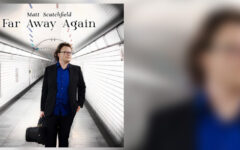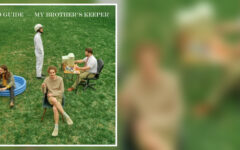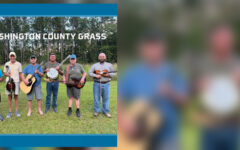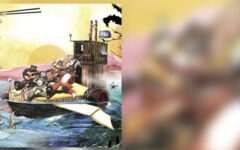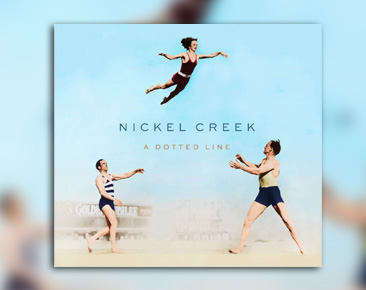
 Now comes a perfectly named CD: Nickel Creek’s A Dotted Line.
Now comes a perfectly named CD: Nickel Creek’s A Dotted Line.
The 10-song project and tour is the band’s first since taking what was called “an indefinite hiatus” in 2007. Think of that dotted line as an ellipsis – three little dots that represent a pause.
On one side of that dotted line is what came before, a band that sold millions of recordings and filled arenas with music that reached far beyond the bluegrass that Chris Thile and Sara and Sean Watkins played as kids. On the other side of that line, after that seven-year pause, is this 10-song collection, released Tuesday by Nonesuch Records.
Several things are immediately obvious. First is that the absence has taken nothing away from the magical harmonies and aggressive playing that fueled Nickel Creek’s earlier successes. Second is that the band’s song craft has reached a new level of maturity. There are lines here that some novelists would kill to write. This one, for example, from Christmas Eve: “We sat in your car that night, cried and said it all, then parted knowing nothing.” Third is that this is the most adventurous music yet from musicians who are still only in their mid-30s, despite first playing together 25 years ago.
But adventurous doesn’t mean wild. The recognizable Nickel Creek sound is still there on most of these cuts – tight harmonies, Thile’s exaggerated mandolin chop, Sean Watkins’ fine guitar work and the expressive interplay between Sara Watkins’ fiddle and classy bass lines from Mark Schatz, on leave from the Claire Lynch Band to reprise his pre-hiatus work with Thile and Co.
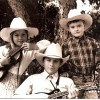 This isn’t a greatest hits rehash tour by wrinkled rockers trying to recapture the magic long after Elvis has left the building. Eight of the 10 songs are originals by one or more of the trio.
This isn’t a greatest hits rehash tour by wrinkled rockers trying to recapture the magic long after Elvis has left the building. Eight of the 10 songs are originals by one or more of the trio.
Some of these songs will stand among Nickel Creek’s best work, including the album-opening Rest of My Life, the instrumental Elsie, Love of Mine and 21st of May.
Rest of My Life is a reminder that Nickel Creek is not, by any stretch of the imagination, a traditional bluegrass band. Bluegrass bands, for the most part, don’t play huge arenas, and their fans are too well-behaved to leave behind what the song calls “a giant sea of Solo cups” when the music stops. But the song is not just an anthem to what was, but a nod to the fact that getting back together to make music isn’t such a shabby pursuit: “There are worse ways to start the first day of the rest of my life.”
Elsie, one of two instrumentals, stuffs all of the band’s musical influences into two and a half minutes, from bluegrass to classical, as it builds from a quiet start to a sound that rivals a larger orchestra.
But 21st of May, more than any of the other songs, underscores how much the band has grown up while on hiatus. Sean Watkins took an event that invited parody – the unfulfilled prediction by broadcaster-evangelist Harold Camping that true believers would ascend into heaven on May 21, 2011 – and turned it into a non-judgmental, thought-provoking song that reminds us that people once scoffed at Noah, “then cried when the rains came.”
But there are some surprises, too, namely Hayloft, Elephant in the Corn, and You Don’t Know What’s Going On. I found them exciting and bold. I’m sure many others will find them offputting.
Hayloft veers into new wave territory, very much in the tradition of the original version by Canadian indie rockers Mother Mother. You Don’t Know What’s Going On is another rocker, albeit with traditional bluegrass instruments (minus the banjo).
The most pleasant surprise, to these ears at least, was the second instrumental, Elephant in the Corn. It starts with Thile’s staccato mandolin attack, sounding almost like he’s sending a message in Morse Code. The music races, then stops, then races again. It’s the longest song on the CD, and the most expressive. But what really grabbed me was the intentional dissonance of a few-seconds-long passage near the song’s mid-point. First, Sara Watkins’ fiddle strikes an off note, then Schatz’s bow slurs another one. It’s a real attention grabber, forcing you to listen and wonder what else is in store.
All in all, A Dotted Line was worth the long wait. And giving it repeated listens was “a great way to start the first day of the rest of my life.”

